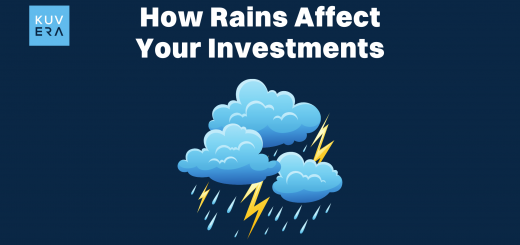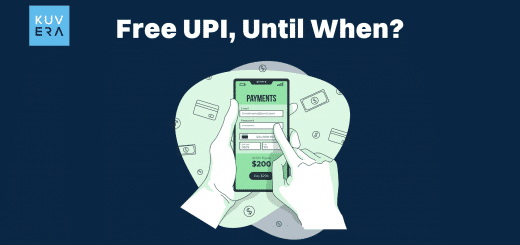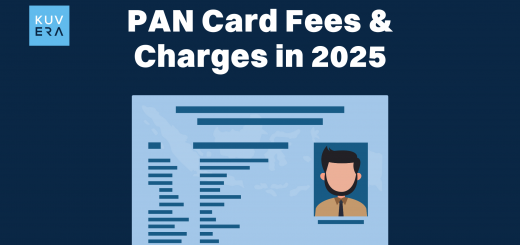In today’s digital age, every transaction seems to require a multitude of personal details. It is easy to become complacent about the information we share. Among these seemingly innocuous pieces of data is your Permanent Account Number, or PAN.
PAN, the ten-digit alphanumeric identifier, issued by the Income Tax Department in India, is a crucial key to your financial world. It is essential for various financial activities, including filing tax returns, making significant investments, and opening bank accounts. It is also a potent tool in the hands of fraudsters.
You can think of your PAN as a unique digital fingerprint in the financial realm.
Would you hand over your actual fingerprints to a stranger? Similarly, you should exercise extreme caution when it comes to sharing your PAN details. Disclosing this seemingly simple piece of information carelessly can unlock a Pandora’s Box of financial troubles. This, in turn, can lead to significant distress and financial losses.
So, why is it so critical to guard your PAN with vigilance?
Here are the murky depths of PAN frauds:
Understanding the Danger
To truly appreciate the importance of PAN confidentiality, it is crucial to understand why this seemingly random string of characters holds such value for malicious actors. Your PAN acts as a central identifier. It links various aspects of your financial life. With access to your PAN, fraudsters can potentially do the following:
1. Impersonate You
Your PAN can be used to create fake identities or impersonate you in various financial transactions. This could involve opening fraudulent bank accounts, applying for loans or credit cards in your name, or even carrying out illegal activities under your identity. Imagine the nightmare of discovering loans you never applied for or facing legal repercussions for actions you never committed!
2. Access Your Financial Information
While your PAN alone might not grant direct access to your bank accounts, it serves as a crucial piece of the puzzle for fraudsters looking to piece together your financial profile. Combined with other publicly available information or data obtained through phishing or data breaches, your PAN can help them gain a more comprehensive understanding of your financial standing, making you a more lucrative target for sophisticated scams.
3. File Fraudulent Tax Returns
In a particularly insidious form of fraud, criminals can use your PAN to file bogus tax returns and claim fraudulent refunds. This not only causes direct financial loss to the government but can also land you in trouble with the tax authorities, requiring you to prove your innocence and navigate a complex bureaucratic maze.
4. Engage in Benami Transactions
Your PAN could be misused to conduct Benami transactions, where properties or assets are held in someone else’s name to evade taxes or hide illegal wealth. Even if you are not directly involved, the misuse of your PAN in such activities can lead to unwanted scrutiny and legal complications.
5. Facilitate Loan and Credit Card Fraud
With your PAN and some fabricated documents, fraudsters can apply for loans or credit cards in your name, running up significant debts that you will be held responsible for. This can severely damage your credit score, making it difficult to obtain loans or credit in the future and impacting your overall financial health.
6. Mobile SIM Card Fraud
Believe it or not, your PAN can even be misused to obtain duplicate mobile SIM cards. These SIM cards can then be used to intercept One-Time Passwords (OTPs) and carry out fraudulent financial transactions linked to your mobile number.
Real-World Examples of PAN Frauds
The threats outlined above are not merely theoretical possibilities. They are realities that countless individuals have faced.
Here are some common types of PAN frauds that highlight the dangers of careless PAN sharing:
1. Fake Loan Apps
Unscrupulous loan apps often demand access to your PAN and other personal details. Once they have this information, they might either approve small, high-interest loans and then harass you for exorbitant repayments or simply misuse your PAN for fraudulent activities without disbursing any loan at all.
2. Phishing Scams
Cybercriminals often employ sophisticated phishing techniques, such as emails or SMS messages impersonating legitimate organisations like banks or the Income Tax Department, to trick you into revealing your PAN details. These messages often create a sense of urgency or fear, prompting you to act without thinking.
3. Job Scams
Fraudsters posing as recruiters might ask for your PAN as part of the application process. This information can then be used for identity theft or other malicious purposes. Legitimate employers will typically ask for your PAN only after you have been formally offered a job.
4. Investment Scams
Bogus investment schemes often lure unsuspecting individuals with promises of high returns and request their PAN as part of the registration process. This information can then be used to carry out further fraudulent activities or simply vanish along with your investment.
5. KYC Verification Frauds
Scammers may call you pretending to be bank officials or representatives of other financial institutions and ask for your PAN under the guise of completing your Know Your Customer (KYC) verification. They might pressure you to share the details immediately or face account blockage.
6. Data Breaches
Unfortunately, data breaches are becoming increasingly common. If the systems of an organisation you have shared your PAN with are compromised, your information could fall into the wrong hands, exposing you to the risk of fraud.
Practical Steps to Protect Your PAN
Knowing the risks is the first step. You need to take proactive measures that are crucial to safeguarding your PAN.
Here are some essential practices you can adopt:
1. Be Skeptical of Unsolicited Requests
You should never share your PAN with anyone who contacts you out of the blue, whether through phone calls, emails, or messages, especially if they create a sense of urgency or threaten negative consequences. Legitimate organisations will rarely ask for sensitive information like your PAN through unsolicited communication.
2. Verify the Authenticity of the Requester
Before sharing your PAN, you should always verify the legitimacy of the organization or individual requesting it. If it is a company, check their official website and contact them through verified channels. If it is an individual, be absolutely sure of their identity and the genuine need for your PAN.
3. Understand Why Your PAN is Needed
You should always inquire about the specific purpose for which your PAN is being requested. If the reason seems vague or unnecessary, exercise caution and consider refusing to share it.
4. Avoid Sharing Your PAN Publicly
You should be mindful of where you store and share your PAN. Avoid writing it down on physical documents that could be easily lost or stolen. Be cautious about sharing it on unsecured websites or through unencrypted communication channels.
5. Be Wary of Photocopies
You should avoid providing photocopies of your PAN card unless absolutely necessary. If you must provide a copy, consider writing “For [Specific Purpose] Only” across the copy to prevent its misuse for other purposes.
6. Monitor Your Financial Activity
You need to regularly check your bank statements, credit reports, and other financial records for any suspicious activity. Early detection can help minimize the damage caused by fraud.
7. Report Suspicious Activity Immediately
If you suspect that your PAN has been compromised or if you encounter any suspicious requests for your PAN, report it immediately to the relevant authorities, such as your bank and the National Cyber Crime Reporting Portal.
8. Educate Yourself and Others
You need to stay informed about the latest trends in financial fraud and educate your family and friends about the importance of PAN security. Awareness is a powerful tool in preventing fraud.
Wrapping Up
In conclusion, your PAN is more than just a tax identification number. It’s a vital key to your financial identity. Treating it with the utmost confidentiality is not just a suggestion. It is a necessity in today’s world rife with financial scams and cyber threats. You need to understand the risks associated with sharing your PAN carelessly. You need to adopt proactive security measures, you can significantly reduce your vulnerability to fraud and safeguard your financial well-being. Vigilance is the first line of defense in protecting your hard-earned money and your financial future.
Interested in how we think about the markets?
Read more: Zen And The Art Of Investing
Watch here: Learn about the F&O craze in India












